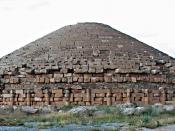Observant should react on the ideas of Fanon of decolonization of the Third Worlds since the world is heading toward globalization. The foreword stated,ÃÂit must seem ironic, even absurd at first to search for associations and intersections between decolonization and globalization ÃÂ parallels would be pushing the analogy ÃÂ when decolonization had the dream of a Third World of free, postcolonial nations firmly on its horizon, whereas globalization gazes at the nation through the back mirror, as it speeds toward the strategic denationalization of state sovereigntyÃÂ (Fanon, Philcox, & Sartre p. xi).
FanonÃÂs ideology for others seems irrelevant as far as todayÃÂs problems are concerned with globalization bringing equal opportunity to all nations to grow economically and politically under one system. It actually denies colonization per se; however, the set up looks the same because the market is governed by developed and rich countries that were before the colonizers. The only difference is that, there are rules and laws that govern the system and the rights of the people are recognized.
Third world countries can participate either as consumers or producers of products in the system. However, it is still clear, that FanonÃÂs view has a corresponding impact especially that powerful nations practice control over weak yet potential nations like those in Africa and some Arab countries for their own benefit.
FanonÃÂs book Wretched of the Earth was a very controversial illustration of the nature of conflicts brought by colonial oppression. Fanon had presented the theory that in this kind of connection, there is no way that colonizer and the colonized will be reconciled due to the conflict of interest. Sartre as the co-author of the book presented the view of French theorist Jean-Jacques Rousseau that colonization ÃÂwas degradation not only of the poor but of the powerful as wellÃÂ...


